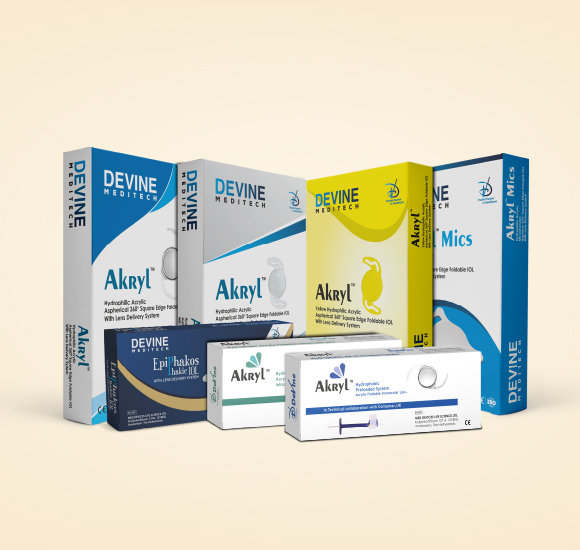
You can get a variety of lenses, of which a few are the best intraocular lenses for cataract surgery in India. During cataract surgery, a small prosthetic lens called an intraocular lens substitutes the eye's original lens. Without the intraocular lenses, some thick eyeglasses are needed after cataract surgery since it gives focal power comparable to that of the natural lens.
Intraocular lenses, like prescribed glasses or contact lenses, can be produced by a collection of focusing powers. In Indian intraocular lenses, you will get a few biometric readings of your eye size before your cataract surgery to help select the best-power intraocular lens for your eye.
The authority of intraocular lenses is artificial implantation made of acrylic, silicone, or other polymers. These substances are harmless to the inherent components of your eye and do not interact with it. Your eyes are shielded from dangerous ultraviolet light by the coating of an Intraocular lens.
Your native lens will be evacuated during cataract surgery and restored with an artificial intraocular lens. Intraocular lenses come in three varieties: monofocal, toric, and presbyopia-correcting. You will get these three types of lenses in this article with their applications. Discover more by reading on.
Monofocal lenses would be helpful to fix a single field of vision if you don't have astigmatism. A monofocal lens would be for you to correct one of your vision issues, such as nearsightedness, difficulty using a computer, or farsightedness. Glasses or contact lenses fix the remaining problems. A further advantage of monofocal lenses is that they don't produce any glare or halos at night, giving you greater confidence while traveling at night.
Patients with eyeglasses cannot wear monofocal lenses, as was already explained. Toric lenses, nevertheless, can be. Toric lenses are helpful in the treatment of closeness of the eyes or vision in people who have distortion.
Presbyopic correcting is helpful to address multiple aspects of your vision issues, in contrast to monofocal and toric lenses, which can only improve one problem of your vision. Precision Vision specialists may decide to utilize a variety of presbyopic-correcting lens types based on how well you see.
To enhance your eyesight, cataract surgery includes extracting a distorted lens and substituting it with a synthetic intraocular lens (also known as an IOL). But not every IOL is the same. You may be able to see farther or closer with some. Confusion might arise while selecting the ideal lens for you.
You only get one chance to choose the lens that will offer you clearer eyesight and enhance your standard of life. Your doctor should go through every possibility with you so you can choose what is most suitable for you.
Your needs will determine how. A monofocal lens could be the best option if you feel confident using glasses following cataract surgery. A toric lens may be suitable if you wish to avoid using distance glasses following cataract treatment and have astigmatism.
If you wish to avoid using range and reading spectacles following cataract surgery, a presbyopia-correcting lens can be the best option. It all depends on what you desire in terms of enhancing your living and vision.
All monofocal glasses are protected. Insurance does not pay for toric or presbyopia-correcting eyeglasses. If you decide to use one of these intraocular lenses, you will incur extra out-of-pocket costs for toric lenses with presbyopia-correcting lenses from both eyes.

You only get one chance to choose the lens that will offer you clearer eyesight and enhance your standard of life. Your doctor should go through every possibility with you so you can choose what is most suitable for you.
Your needs will determine how. A monofocal lens could be the best option if you feel confident using glasses following cataract surgery. A toric lens may be suitable if you wish to avoid using distance glasses following cataract treatment and have astigmatism.
If you wish to avoid using range and reading spectacles following cataract surgery, a presbyopia-correcting lens can be the best option. It all depends on what you desire in terms of enhancing your living and vision.
All monofocal glasses are protected. Insurance does not pay for toric or presbyopia-correcting eyeglasses. If you decide to use one of these intraocular lenses, you will incur extra out-of-pocket costs for toric lenses with presbyopia-correcting lenses from both eyes.
You must speak with your eye surgeon privately before the surgery. The surgical process and your lens alternatives should be described by your surgeon. You will be able to make an accurate choice if you are aware of your options.